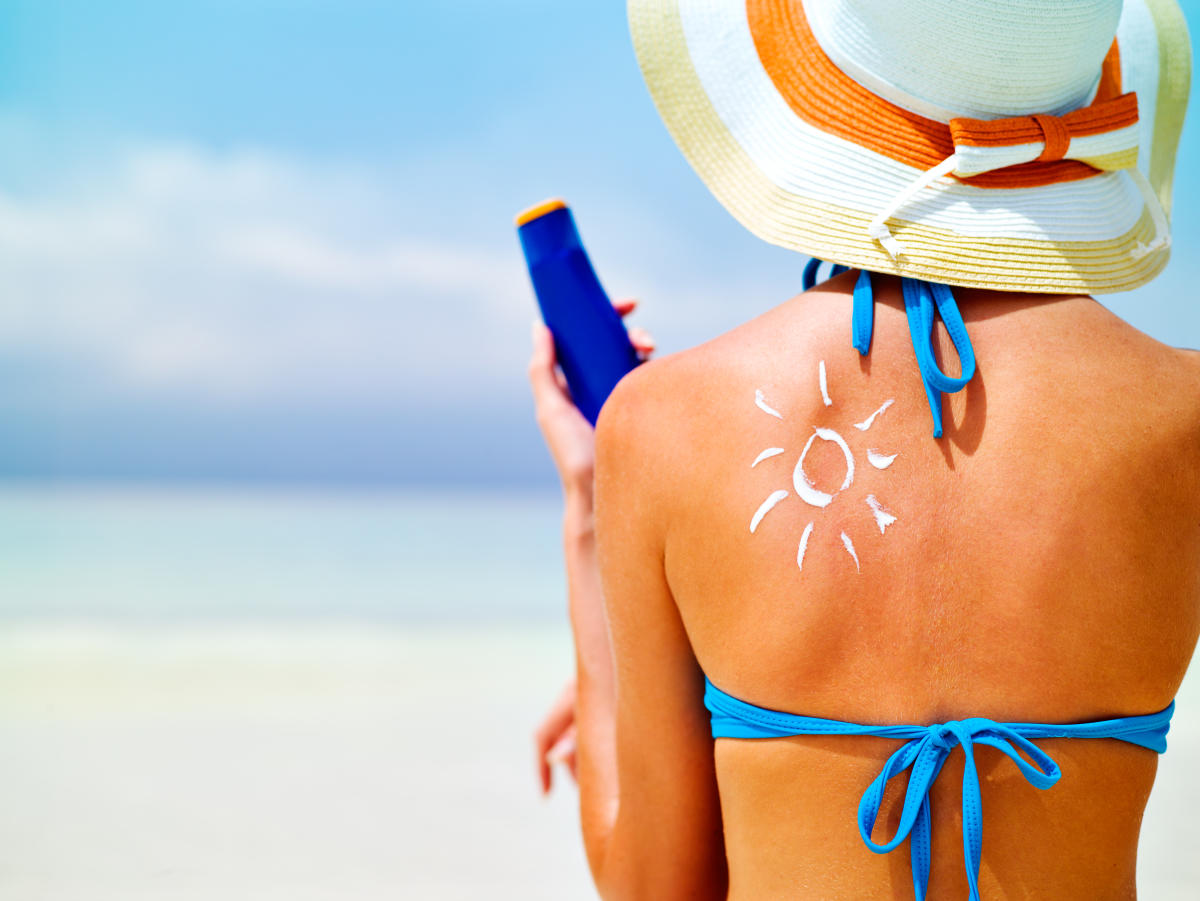#The best sunscreens dermatologists recommend — and use themselves

Table of Contents

Like it or not, applying sunscreen should be a part of your daily beauty routine. Not only can using a powerful SPF cream decrease your chance of developing skin cancer, but it can also help prevent unwanted sun damage and signs of premature aging. To get the scoop on what you need to know about sun protection, we tapped several dermatologists to find out everything from how often you should apply it to how to shop for the best option for your skin.
How often should you apply sunscreen?
You’ve heard it before: You should wear sunscreen often, ideally every day. Dermatologists don’t just talk about the importance of wearing sunscreen — they practice what they preach. “I wear it every day, 365 days a year,” Dr. Gary Goldenberg, assistant clinical professor of dermatology at the Icahn School of Medicine at Mount Sinai in New York, tells Yahoo Life. (His top pick for daily wear is EltaMD’s Sunscreen Sport Lotion.) “Even in winter, you still get some UV that can cause skin damage.”
And they make it easy to remember: “I actually incorporate sunscreen into my daily grooming routine and apply it right after shaving,” Dr. Joshua Zeichner, a New York City–based dermatologist, tells Yahoo Life. Even if you are diligent about applying sunblock every morning, don’t forget to reapply throughout the day — especially if you are spending a lot of time in the sun.
How do dermatologists shop for sunscreen?
In general, it’s a good idea to look for a sunscreen that’s at least SPF 30 or higher and has the words “broad spectrum” on the label, says Bailey. “Broad spectrum” means it will protect you against both UVA rays, which cause premature aging and the development of skin cancers, and UVB rays, which cause sunburn, Zeichner says.
Other than that, a lot boils down to personal preference. “Whether it’s a lotion or gel, stick or spray, the best sunscreen is ultimately the one you are actually using on your skin,” Zeichner says.
What are the best sunscreens according to dermatologists?
Still not sure where to start? Below, we’ve rounded up the seven best sunscreens that dermatologists recommend — and actually use themselves. We’ve got something in the mix for every skin type, whether you’re sensitive, dry, oily or something in between.
“This sunscreen has been clinically tested and shown to give better sunburn protection compared to sunscreens with lower SPFs,” Zeichner says. Neutrogena’s Ultra Sheer Dry-Touch Sunscreen is lightweight, fast-absorbing and has a non-greasy, matte finish. Zeichner particularly likes its high SPF. “In the real world, consumers do not apply as much sunscreen as they should, so the level of protection gets diluted,” he explains. “Starting with a higher SPF to begin with acts like an insurance policy to give you the best level of protection possible.”
EltaMD is known for its quality sunscreen, and Goldenberg is a fan. “This product is noncomedogenic, offers broad-spectrum UV protection and does not leave your face feeling greasy,” he says. EltaMD’s UV Sport is mineral-based and water-resistant, so it won’t drip into your eyes when you sweat.
The name may be a mouthful, but Goldenberg swears by this one. He particularly recommends it for patients who have known sun damage. Isdin’s Eryfotona Actinica is lightweight, won’t leave your skin feeling greasy, and has UVA/UVB protection. It also has DNA repairsomes and vitamin E to help fight UVA-induced skin damage.
Dermatologist Dr. Cynthia Bailey, founder of Dr. Bailey Skin Care, tells Yahoo Life that while she relies heavily on her own sunscreen line for daily use — she uses this for lips. Vanicream is SPF 30 and goes on like a lip balm. It’s water-resistant for up to 80 minutes and is free of chemical sunscreens, dyes, fragrances, lanolin, parabens, formaldehyde, flavoring, oil and gluten, so the odds of having an allergic reaction to it are low. “It also fights lip chapping,” Bailey says.
Bailey calls Coola’s Organic Face Sunscreen “a nice zinc oxide product.” This unscented option doubles as a lotion, so you can moisturize and protect in one go. It’s easy to wear under makeup and is water- and sweat-resistant for up to 80 minutes. A nice feature: Coola’s sunscreen is reef-friendly, so you don’t need to worry about harming ocean life when you go for a swim.
Zeichner likes Aveeno’s Protect + Hydrate sunscreen for a few reasons. “Besides offering broad-spectrum sun protection, it delivers a little oatmeal to repair and hydrate the outer skin layer,” he says. “We know that UV light can disrupt the outer skin layer, leading to dryness and irritation.” The sunscreen is fast-absorbing, oil-free and noncomedogenic, so it won’t clog your pores. It’s also water-resistant for up to 80 minutes.
Derma-E’s Sun Defense sunscreen is 100% unscented, which Bailey likes. It’s also fortified with vitamin C and green tea to help skin recover after sun exposure and fight the signs of aging. The sunscreen’s zinc oxide provides broad spectrum UVA/UVB sun protection, and it’s oil-free so it won’t clog your pores.
If you liked the article, do not forget to share it with your friends. Follow us on Google News too, click on the star and choose us from your favorites.
For forums sites go to Forum.BuradaBiliyorum.Com
If you want to read more News articles, you can visit our News category.



